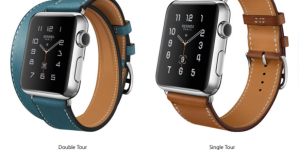-
Tips for becoming a good boxer - November 6, 2020
-
7 expert tips for making your hens night a memorable one - November 6, 2020
-
5 reasons to host your Christmas party on a cruise boat - November 6, 2020
-
What to do when you’re charged with a crime - November 6, 2020
-
Should you get one or multiple dogs? Here’s all you need to know - November 3, 2020
-
A Guide: How to Build Your Very Own Magic Mirror - February 14, 2019
-
Our Top Inspirational Baseball Stars - November 24, 2018
-
Five Tech Tools That Will Help You Turn Your Blog into a Business - November 24, 2018
-
How to Indulge on Vacation without Expanding Your Waist - November 9, 2018
-
5 Strategies for Businesses to Appeal to Today’s Increasingly Mobile-Crazed Customers - November 9, 2018
Google’s Project Aura Will Raise Glass From The Dead
Google Glass is now known as Project Aura and Google has hired engineers to give the project momentum. The new subsidiary also has its sights on many more engineers from outside Google, including the three from Amazon’s Lab 126, as 30 more jobs are listed for the new subsidiary since this Monday (Sept. 14, 2015) on Google’s jobs available at Project Aura, Glass and Beyond listings on its web site.
Advertisement
The project has now been named Project Aura, though it is still being headed by Ivy Ross, who previously ran the Glass project, Wall Street Journal reported. Though conversely apparently Tony Fadell, who is CEO of Google’s Internet of Things arm Nest which has been spun off, will have some oversight on projects.
Business Insider further reports, the project will also aims to look to present concepts first drawn up for Glass into other types of products. Project Aura has nothing to do with Project Ara by the way, that one just works on affordable phones that can be easily taken apart.
That means we could see Google taking on Samsung and Apple with a whole host of new wearable devices.
With the decision to remain with Google, Project Aura will be able to help out in other advanced technology efforts such as Cardboard, which turns regular smartphones into virtual reality devices with a cardboard headset, and Soli, which is a system that identifies subtle finger movements using radar built into tiny microchips. Google acknowledged earlier in the year that the program was moved under Tony Fadell, who has been heading up the connected home division after selling Google his wildly successful Nest Labs.
Advertisement
The initial version of Glass, which sold for $1,500, prompted a privacy backlash because users could record video in public places without others noticing. Amir Frenke joined a month later as director of software development. She is now Aura’s manager of technical program management. The e-commerce retailer launched its Fire smartphone past year but received a poor welcome, thus it stopped producing its Fire Phone line-up.





























